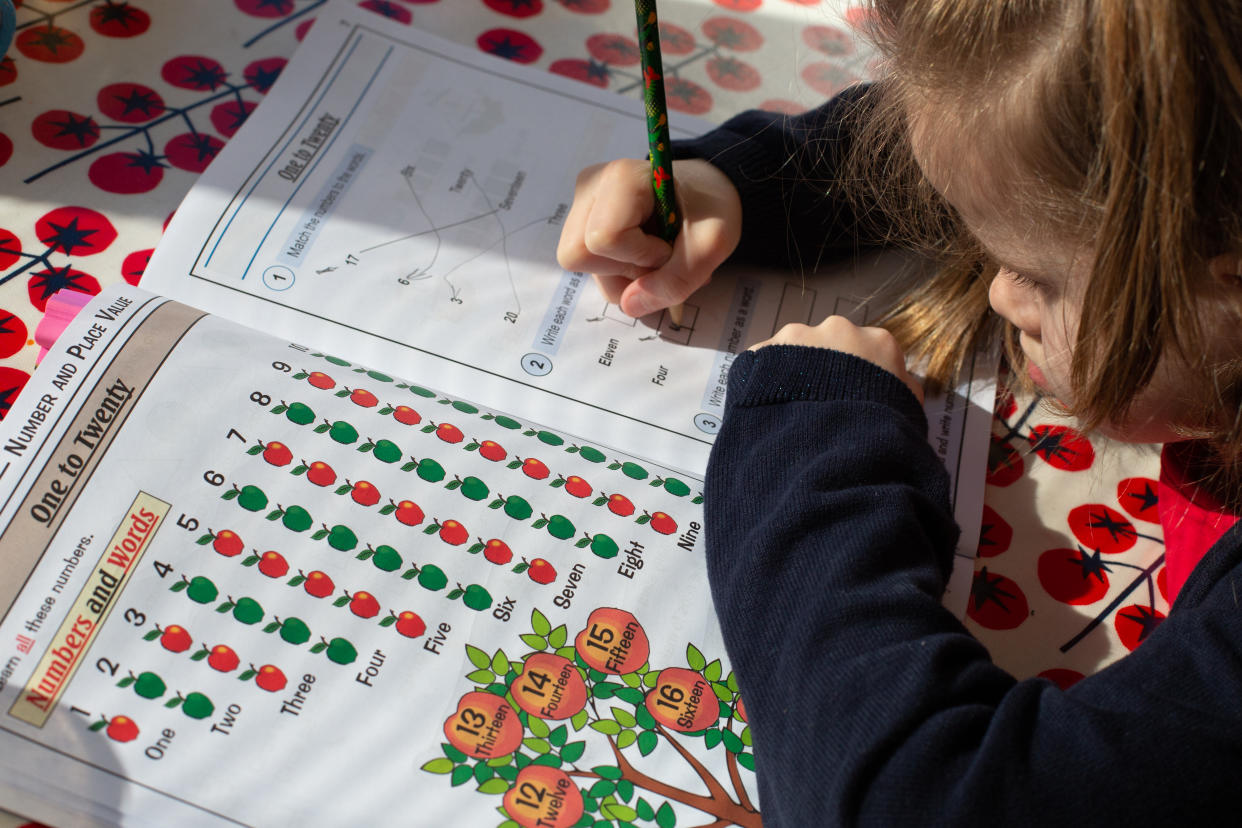Coronavirus: Can I refuse to send my child to primary school?

The government has said it wants primary schools to start fully reopening next month.
In its COVID-19 recovery strategy, Number 10 said it currently expects reception, year one and year six pupils to return in smaller class sizes from 1 June at the earliest.
This has been condemned by teaching unions, with the government still recording hundreds of coronavirus deaths every day.
Meanwhile, an online petition calling for parents to be given the option not to send their children back had gathered 486,000 signatures as of 3pm on Tuesday.
Watch video below
Latest coronavirus news, updates and advice
Live: Follow all the latest updates from the UK and around the world
Fact-checker: The number of COVID-19 cases in your local area
6 charts and maps that explain how COVID-19 is spreading
So, will parents be able to refuse to comply? Here is what we know so far.
What are the current rules?
“The rate of infection remains too high to allow the reopening of schools for all pupils yet,” the Department for Education has said in its latest guidance.
Since March, only critical workers or parents of vulnerable children have been able to send their children to school. It means just 2% of the nation’s pupils are currently attending in person.
However, critical workers do not have to comply with this. In its latest advice, the Department for Education said: “This is an offer to parents and carers and there is no requirement for parents and carers to send their children to school if they do not need or wish to do so.”
On the other hand, parents of vulnerable children are “expected” to send them to school. If a parent does not want to do so, the government has said “the social worker and education provider should explore the reasons for this”.
What is the government’s plan for reopening primary schools?
In its “recovery strategy”, the government laid out a “phased return” beginning next month.
It said: “Schools should prepare to begin to open for more children from 1 June. The government expects children to be able to return to early years settings, and for Reception, Year 1 and Year 6 to be back in school in smaller sizes, from this point.
“This aims to ensure that the youngest children, and those preparing for the transition to secondary school, have maximum time with their teachers.”
The guidance adds: “The government’s ambition is for all primary school children to return to school before the summer for a month if feasible, though this will be kept under review.
“The Department of Education will engage closely with schools and early years providers to develop further detail and guidance on how schools should facilitate this.”
Can parents refuse to send their children back if and when schools reopen?
Everything we have heard from the government so far suggests sending children back to school won’t be compulsory.
In the guidance above, it only states children are “expected” to return.
Meanwhile, Boris Johnson’s official spokesman only said parents are “strongly encouraged” to send their children to school.
Furthermore, there will be no financial penalties for parents who don’t comply.
Asked whether parents would be punished for keeping their children at home if they feel they would not be safe from infection, the spokesman told reporters on Monday: “The short answer is: no they won’t.
“While we will not penalise parents for keeping children at home once they are eligible to return to school, we will strongly encourage them to do so.”

 Yahoo News
Yahoo News 

